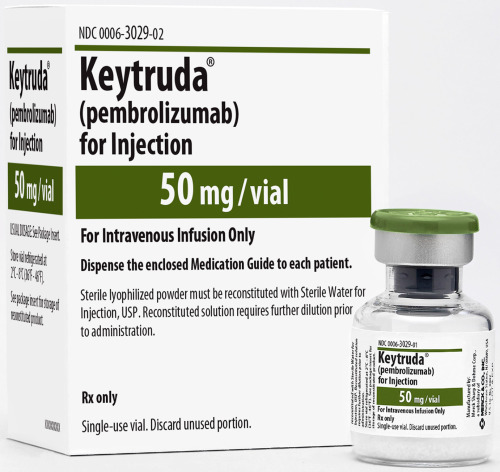Merck's Keytruda plays catch-up to BMS rival in blood cancer use

Merck & Co and its Keytruda (pembrolizumab) is following Bristol-Myers Squibb (BMS) and its rival cancer immunotherapy, Opdivo (nivolumab), into the classical Hodgkin Lymphoma (cHL) indication.
The US Food and Drug Administration (FDA) has granted Keytruda Breakthrough Therapy status just days after BMS filed Opdivo in cHL, as the showdown between the two rival drugs continues.
But the FDA's decision shows that Merck could be years behind Opdivo in this use, even though the designation allows for a faster development and review.
Opdivo, which, like Keytruda, is an anti-PD1 therapy, got its Breakthrough Therapy designation for cHL back in 2014.
The designation is intended to expedite the development and review of a candidate that is planned for use, alone or in combination, to treat a serious or life-threatening disease or condition when preliminary clinical evidence indicates that the drug may demonstrate substantial improvement over existing therapies on one or more clinically significant endpoints.
The designation in cHL is based on data from the ongoing phase 1b KEYNOTE-013 and phase 2 KEYNOTE-087 studies evaluating single agent Keytruda in cHL.
Findings from the phase 1b study were presented at the 2015 American Society of Hematology Annual Meeting and data from KEYNOTE-087 will be presented at an upcoming medical meeting.
Merck is developing Keytruda in more than 30 tumour types in 250 clinical trials, including more than 100 trials combining it with other cancer treatments.
BMS has filed the drug in cHL patients who have received autologous stem cell transplants and Takeda/Seattle Genetics' Adcetris (brentuximab vedotin).
DrugAnalyst research forecasts Keytruda will generate sales of more than $4.7 billion in 2020, and forecasts Opdivo will generate $9 billion in 2020.
Related articles:
BMS applies for Hodgkin's Lymphoma use for Opdivo in US
NICE fast-tracks Keytruda for advanced melanoma











